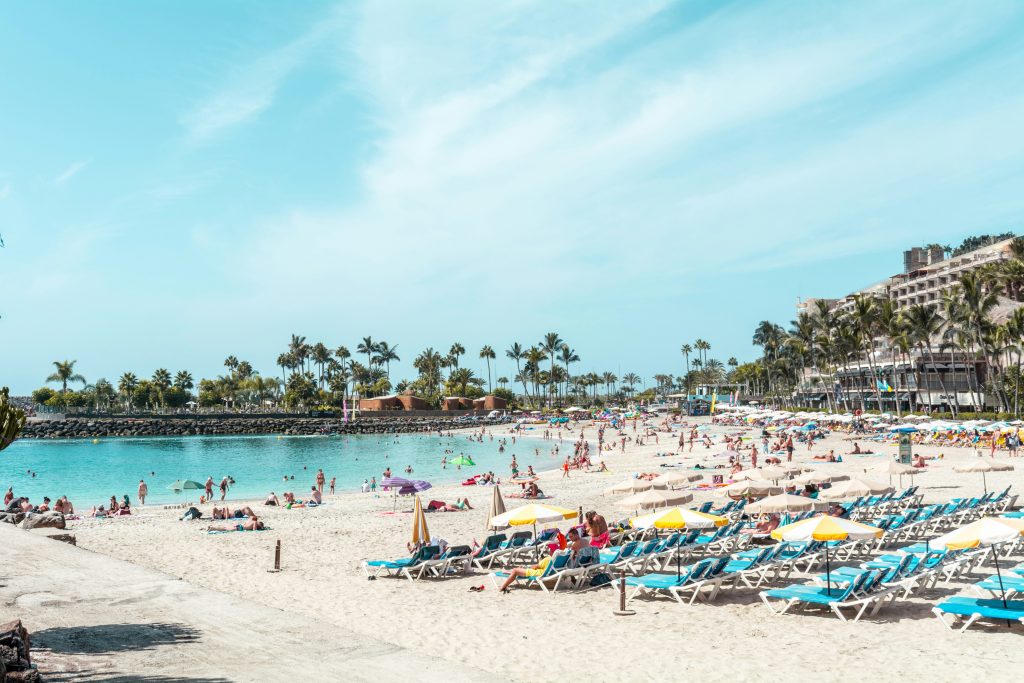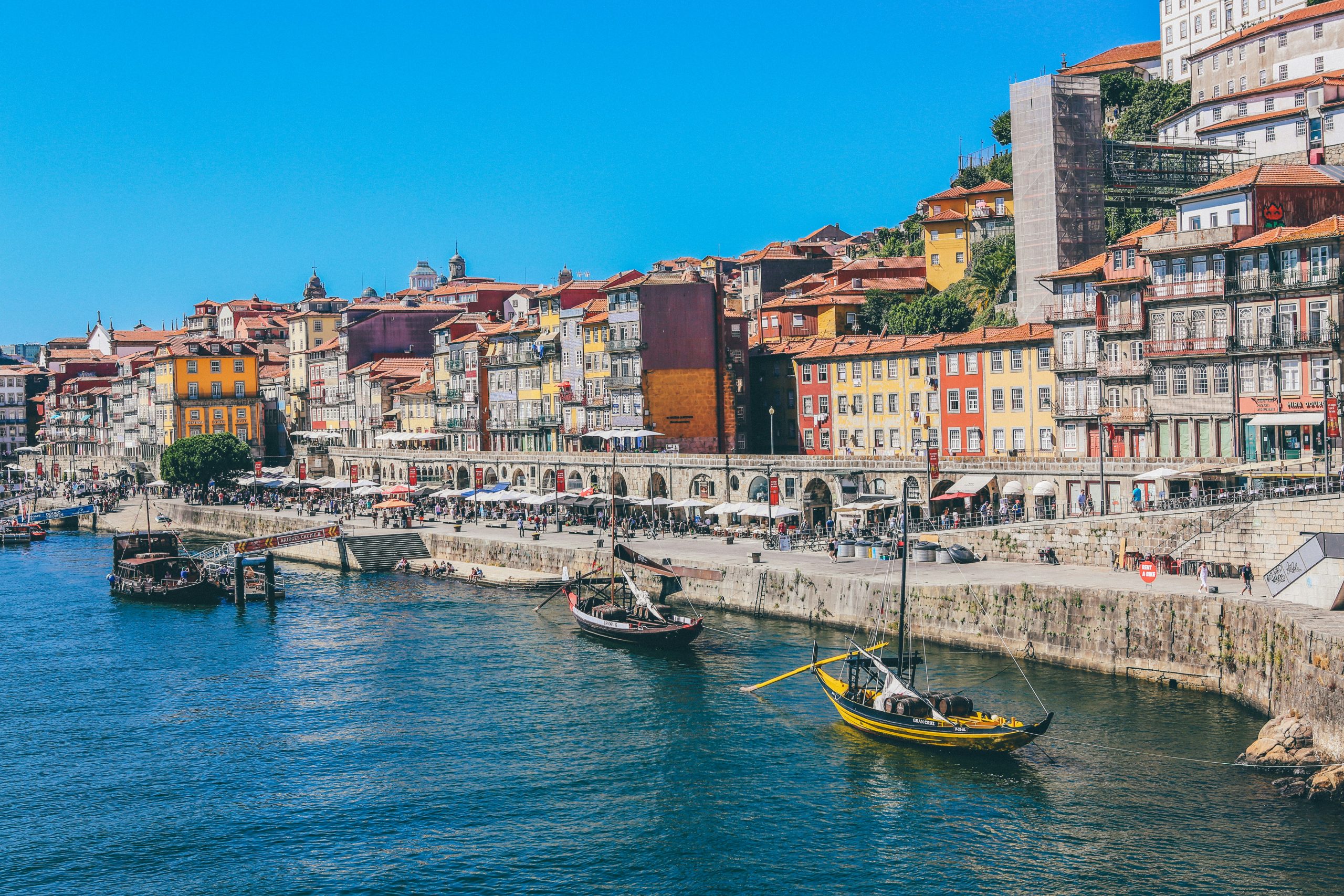✈️ Introduction
Spain has become one of the most attractive destinations for remote workers worldwide. With its sunny climate, rich culture, excellent infrastructure, and access to the entire Schengen Area, the Spain Digital Nomad Visa (DNV) — introduced under the Startup Act in 2023 — is now one of the most popular residency options for freelancers, entrepreneurs, and employees of foreign companies.
In 2025, Spain has further clarified and streamlined the application process, making it easier for remote workers to apply through Spanish embassies abroad or directly from Spain if already residing there legally.
This visa is not just a temporary stay permit; it can lead to longer-term residency and even citizenship for those who want to make Spain their permanent base.
In this comprehensive guide, we’ll cover:
- ✅ Who can apply for the Spain Digital Nomad Visa
- ✅ Eligibility criteria and income requirements
- ✅ Step-by-step application process
- ✅ Benefits and challenges of the visa
- ✅ Tax incentives and Beckham Law
- ✅ Family inclusion (spouse & dependents)
- ✅ Renewal, extension, and pathway to residency/citizenship
- ✅ FAQs and tips for applying in 2025
👤 Who Can Apply for the Spain Digital Nomad Visa?
The Spain DNV is designed for remote workers who:
- Work for a foreign company or are self-employed serving non-Spanish clients.
- Have a stable income that meets the minimum threshold.
- Can prove that their work can be done remotely using technology.
This includes:
- Freelancers providing services to international clients.
- Remote employees of companies located outside Spain.
- Entrepreneurs running online businesses targeting global markets.
❌ What you cannot do: Work for Spanish companies or generate income primarily from Spain while on this visa.

📋 Eligibility Requirements (2025 Update)
As of 2025, the following requirements apply for Spain’s Digital Nomad Visa:
- Income Requirement
- At least 200% of the Spanish Minimum Interprofessional Wage (SMI).
- In 2025, this equals €2,160/month (approx. €25,900/year).
- Income can be from salary, freelance invoices, or dividends.
- Employment/Client Rules
- If employed: You must have a contract with a company outside Spain for at least 3 months.
- If freelance: At least 80% of income must come from foreign clients.
- Work Experience or Education
- Either:
- Bachelor’s/Master’s degree from a recognized university, OR
- At least 3 years of professional work experience in your field.
- Either:
- Clean Criminal Record
- No criminal convictions in the last 5 years in Spain or your country of residence.
- Police clearance certificate required.
- Health Insurance
- Full private health insurance valid in Spain.
- Proof of Accommodation
- Rental contract, Airbnb booking, or property deed to prove you have a place to stay.
- Documentation
- Valid passport
- CV and qualifications
- Proof of funds/bank statements
- Medical certificate
💶 Financial Requirements in Detail
Spain calculates the income requirement based on the national minimum wage (SMI).
- Main Applicant: 200% of SMI (€2,160/month)
- Spouse/Partner: Additional 75% of SMI (~€810/month)
- Each Child: Additional 25% of SMI (~€270/month per child)
👉 Example: A family of 4 (2 parents + 2 kids) would need approx. €4,050/month proven income.
This ensures Spain only admits digital nomads with stable earnings who won’t burden the social system.
You can apply in two ways:
- From Abroad:
- Apply at your local Spanish consulate/embassy.
- You’ll receive a 1-year visa to enter Spain.
- From Spain (if already legally there):
- Apply at Spain’s immigration office for a 3-year residence permit directly.
- Common for people already in Spain on a tourist visa or Schengen visa.
How to Apply for the Spain Digital Nomad Visa
📍 Where to Apply
The application process for Spain’s Digital Nomad Visa may seem overwhelming, but if you prepare your documents in advance, it can be smooth. Below is a step-by-step guide for 2025.
🛠️ Step 1: Choose Where to Apply
You have two main routes:
- Apply from Abroad (Consulate Application)
- Submit your application to the Spanish consulate in your home country.
- You will receive a 1-year Digital Nomad Visa.
- Once you arrive in Spain, you can switch it to a residence card.
- Apply from Within Spain (Residence Permit Application)
- If you’re already in Spain legally (tourist visa, Schengen visa, or other permit), you can apply directly at the Spanish Immigration Office (Uge-CE).
- This gives you a 3-year residence permit from the start.
👉 Tip: If you want a longer initial permit, applying from inside Spain is often more beneficial.
📂 Step 2: Gather Required Documents
Here’s the updated 2025 checklist:
- Valid passport (minimum 1 year validity)
- Completed application form (EX–01 or EX–23 depending on application route)
- Recent passport-size photos
- Proof of employment/contract:
- If employed: Work contract with foreign company + letter confirming remote work eligibility
- If freelance: Invoices, contracts, and client letters showing ongoing relationships
- Proof of income: Bank statements for last 6–12 months showing consistent deposits
- Educational qualifications: Degree certificate OR proof of 3 years work experience
- Criminal background check: From your country of residence (issued within last 3 months)
- Medical certificate: Proving you are free from contagious diseases
- Health insurance: Private, full coverage in Spain (public insurance not accepted for DNV)
- Proof of accommodation: Rental lease, hotel booking, or Airbnb reservation
- Family documents (if applying with spouse/kids): Marriage certificate, birth certificates (apostilled and translated)
💶 Step 3: Pay the Application Fee
- Consulate application fee: Around €80–€120 (varies by consulate).
- Residence permit application fee (in Spain): €80–€100.
Payment is typically made by bank transfer or directly at the consulate during submission.
🏛️ Step 4: Submit Your Application
- At Consulate: Make an appointment through the official consular website. Submit your documents in person. Some consulates allow online pre-submission.
- In Spain: Submit documents electronically via the Mercurio online platform (if you have a digital certificate) or through a legal representative (immigration lawyer).
👉 Applications in Spain often move faster with the help of a local lawyer.
⏳ Step 5: Wait for Processing
- Consular applications: 2–3 months on average.
- In-country applications: 1–2 months, sometimes faster.
You will be notified by email or phone when a decision is made.
🪪 Step 6: Collect Your Visa/Residence Card
- If approved abroad: Collect your visa sticker from the consulate, travel to Spain, and then register for your TIE (Tarjeta de Identidad de Extranjero) within 30 days.
- If approved in Spain: Go directly to your local police station/immigration office for fingerprinting and card issuance.
Your TIE card will show you are a Digital Nomad Visa holder with legal residence.
📅 Step 7: Renewal Process
- Consulate route: After 1 year, you must switch to a residence permit (valid for 3 years).
- In-country route: Your initial permit is 3 years, renewable for 2 more years.
- After 5 years total, you can apply for permanent residency.
- After 10 years of residency, you may be eligible for Spanish citizenship (reduced to 2 years for citizens of Latin America, the Philippines, and some other countries).
📌 Quick Checklist (Copy-Friendly)
✅ Passport valid for 1+ year
✅ Application form EX–01 / EX–23
✅ Recent passport photos
✅ Proof of remote work (contract/invoices)
✅ Proof of income (bank statements)
✅ Educational qualification or 3 years work experience
✅ Criminal background check (apostilled + translated)
✅ Medical certificate
✅ Health insurance valid in Spain
✅ Proof of accommodation
✅ Marriage/birth certificates (if applicable)
✅ Application fee payment
Taxes, Cost of Living, and Family Benefits
🏦 Tax Benefits for Digital Nomads in Spain
One of the biggest attractions of Spain’s Digital Nomad Visa in 2025 is the favorable tax regime.
Spain offers digital nomads the chance to apply for the Beckham Law — a special tax regime created to attract foreign professionals.
⚖️ What is the Beckham Law?
- Officially called the Special Expats’ Tax Regime.
- Allows eligible foreigners to pay a flat 24% income tax on Spanish income up to €600,000.
- Normally, Spain’s progressive tax rates go up to 47%.
- Valid for 6 years.
💡 How it Works for Digital Nomads
- If your work income is earned from a foreign employer or foreign clients, it may not be taxed in Spain at all (depending on structure).
- If you are taxed in Spain, the flat 24% rate applies — much lower than standard rates.
- Foreign assets (like property or dividends abroad) are generally not taxed under Beckham Law.
👉 Many digital nomads work with Spanish tax advisors to make sure they structure their contracts to maximize these benefits.
💸 Cost of Living in Spain (2025)
Spain remains one of the most affordable Western European countries for digital nomads — especially compared to France, Germany, or the UK.
Here’s an approximate breakdown for a single person:
- Rent
- Madrid/Barcelona (city center): €1,000–€1,500/month
- Valencia, Malaga, Seville: €600–€900/month
- Smaller towns: €400–€700/month
- Utilities (electricity, internet, water): €120–€200/month
- Food & groceries: €250–€400/month
- Eating out: €10–€15 for a meal, €40–€60 for dinner for two
- Transport: €40–€60 monthly metro/bus pass
- Coworking space: €100–€250/month
👉 On average, a comfortable digital nomad lifestyle in Spain costs:
- €1,500–€2,500/month in large cities
- €1,000–€1,800/month in smaller cities
👨👩👧👦 Bringing Family Members
The Spain Digital Nomad Visa allows you to bring your family with you.
Who Can Join You?
- Spouse or registered partner
- Children under 18
- Dependent adult children (students)
- Dependent elderly parents (in some cases)
Additional Income Requirements
- Spouse: +75% of SMI (~€810/month in 2025)
- Each child: +25% of SMI (~€270/month per child)
Benefits for Family
- Spouse/partner receives a residence permit linked to your visa.
- Children can attend public or private schools in Spain.
- Entire family can enjoy Schengen travel rights.
🌟 Why Spain is Great for Families
- High-quality healthcare system (ranked among the best in the world).
- Affordable education, with both Spanish and international schools.
- Safe, family-friendly lifestyle with plenty of outdoor activities.
- Access to EU residency and citizenship pathways for the whole family.
Benefits, Challenges & Best Cities for Digital Nomads in Spain
✅ Benefits of the Spain Digital Nomad Visa
- Legal Right to Live & Work Remotely in Spain
- Provides official residency for up to 5 years.
- Unlike tourist visas, you don’t need to leave every 90 days.
- Schengen Travel Access
- As a DNV holder, you can freely travel across the 26 Schengen countries for up to 90 days in any 180-day period.
- Pathway to Permanent Residency & Citizenship
- After 5 years, you can apply for permanent residency.
- After 10 years, you may qualify for Spanish citizenship (reduced to 2 years for nationals of Latin America, the Philippines, Andorra, Equatorial Guinea, and Portugal).
- Tax Incentives under Beckham Law
- Flat 24% tax rate (vs 47% normal) for 6 years.
- Exemption from wealth tax on global assets.
- Family Inclusion
- Spouse/partner and children can join under dependent visas.
- Children can access Spain’s public education and healthcare.
- High Quality of Life
- Mediterranean climate, world-famous cuisine, rich cultural heritage.
- Affordable compared to other Western EU countries.
- Strong Infrastructure
- Reliable internet (Spain ranks among the top in Europe for fiber coverage).
- Modern transportation system (high-speed trains, metro, buses).
⚠️ Challenges & Limitations
While Spain’s Digital Nomad Visa has many advantages, there are some challenges to consider:
- High Bureaucracy
- Spain is known for paperwork and administrative delays.
- Processing times vary depending on consulate or region.
- Income Threshold
- €2,160/month is accessible for many, but higher than in some competitor countries (e.g., Colombia, Brazil).
- No Local Employment
- You cannot work for Spanish companies or primarily earn from Spanish clients.
- At least 80% of income must come from foreign sources.
- Healthcare Requirement
- Must purchase private health insurance (public healthcare access comes only after becoming a permanent resident).
- Tax Complexity
- While Beckham Law offers benefits, Spain’s tax system is still complex.
- Professional tax advice is strongly recommended.
- Housing Market
- Rising rent prices in Madrid, Barcelona, and Valencia due to demand from expats and nomads.
🏙️ Best Cities in Spain for Digital Nomads (2025)
Spain has many attractive cities and regions. Here are the top destinations for digital nomads in 2025:
1. Barcelona
- 🌟 Vibrant culture, international community, Mediterranean beaches.
- 💻 Plenty of coworking spaces and tech startups.
- ⚠️ Higher cost of living than most Spanish cities.

2. Madrid
- 🌟 Capital city with rich cultural life, museums, and nightlife.
- 🚆 Excellent transport hub (flights and trains).
- ⚠️ No beach; summers can be very hot.

3. Valencia
- 🌟 Affordable, beachside city with growing nomad scene.
- 🌿 Green spaces and relaxed lifestyle.
- ⚠️ Smaller international community than Madrid/Barcelona.

4. Malaga (Costa del Sol)
- 🌟 Sunniest city in Spain with year-round good weather.
- 💻 Strong nomad and expat community.
- ⚠️ Can get crowded in tourist season.

5. Granada & Seville (Andalusia)
- 🌟 Historical charm, Moorish architecture, and affordable living.
- 🎭 Lively student population and cultural events.
- ⚠️ Fewer international flights than major hubs.
6. Bilbao
- 🌟 Modern yet traditional Basque culture, great food scene.
- 🌿 Close to mountains and surfing beaches.
- ⚠️ Wetter climate than southern Spain.

7. Canary Islands (Tenerife, Gran Canaria, Lanzarote)
- 🌟 Warm weather all year, ideal for winter escapes.
- 💻 Strong nomad hubs in Las Palmas and Santa Cruz.
- ⚠️ Further from mainland Europe (longer flights).

Renewal, Long-Term Residency & FAQs
🔄 Renewal & Extension Process
Consulate Route Renewal
- If you applied from your home country, you initially receive a 1-year visa.
- Once in Spain, you can switch to a residence permit valid for 3 years.
- This residence permit can be renewed for an additional 2 years.
In-Country Route Renewal
- If you applied from Spain directly, you start with a 3-year residence permit.
- At the end of 3 years, you can renew it for 2 more years.
After 5 Years
- Once you’ve legally resided in Spain for 5 years, you can apply for permanent residency.
- Permanent residency allows you to live and work in Spain without restrictions.
🏛️ Pathway to Citizenship
Spain is one of the few countries where the Digital Nomad Visa can be a bridge to citizenship.
- Standard Citizenship Timeline: 10 years of continuous legal residency.
- Fast-Track Citizenship (2 years): If you are from a Latin American country, the Philippines, Andorra, Equatorial Guinea, or Portugal.
- You must demonstrate integration into Spanish society (basic Spanish language and cultural knowledge test).
❓ FAQs about the Spain Digital Nomad Visa (2025)
1. Can I work for Spanish clients while on this visa?
👉 You can, but no more than 20% of your income can come from Spanish companies.
2. Do I need private health insurance?
👉 Yes. Full coverage private health insurance is required until you qualify for permanent residency.
3. How long does the application take?
👉 Processing times vary:
- Consulates abroad: 2–3 months
- In Spain: 1–2 months (sometimes faster with a lawyer)
4. Can I bring my spouse and children?
👉 Yes. You need additional income to support them (75% of SMI for spouse, 25% per child).
5. Do I pay taxes in Spain?
👉 If you spend more than 183 days/year in Spain, you are considered a tax resident. Most digital nomads apply for the Beckham Law to lower their tax rate to 24%.
6. Can this visa lead to permanent residency?
👉 Yes. After 5 years of continuous residence, you can apply for long-term EU residency.
7. Is Spanish language required?
👉 Not for the visa itself, but it is required for permanent residency and citizenship.
🌟 Conclusion
The Spain Digital Nomad Visa is one of the most attractive residency programs in Europe for remote workers in 2025. It offers:
- Legal residency with the right to work remotely
- Access to the Schengen Zone
- Favorable tax benefits under the Beckham Law
- Family reunification options
- A clear pathway to permanent residency and citizenship
While bureaucracy and paperwork can be challenging, the lifestyle benefits — Mediterranean climate, rich culture, delicious food, affordable living, and excellent infrastructure — make Spain an ideal base for digital nomads.
If you’re ready to take your remote work lifestyle to the next level, the Spain Digital Nomad Visa (2025) could be your gateway to living and thriving in one of the world’s most beautiful countries.



